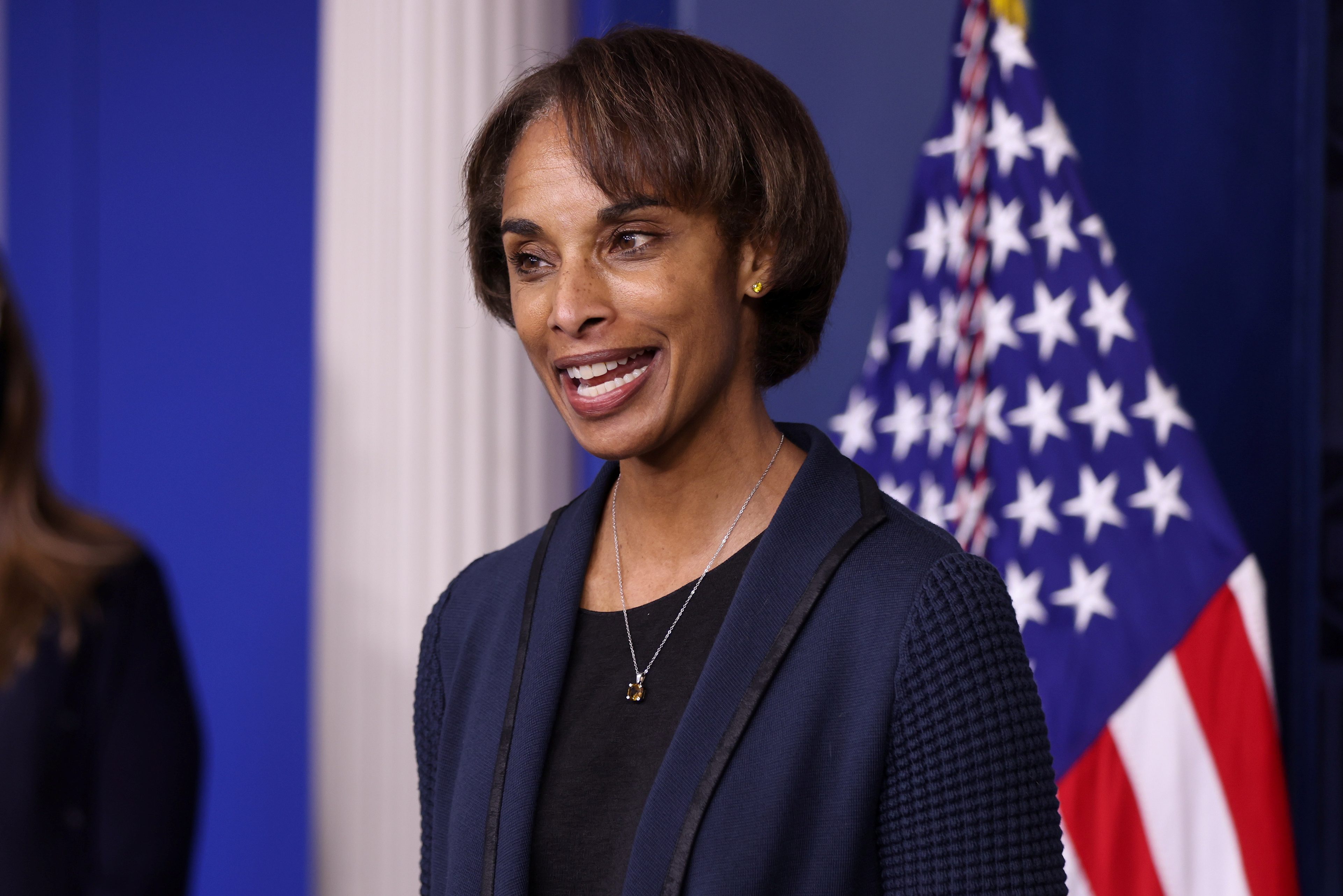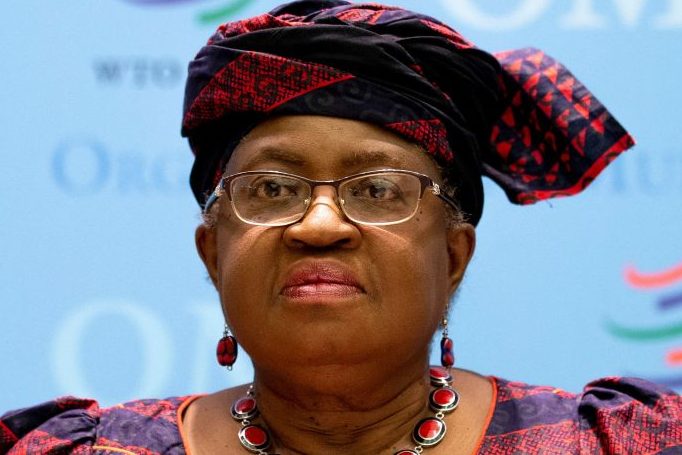WASHINGTON (NewsNation Now) — Women now hold many of the jobs controlling the U.S. economy —the world’s largest — and they’re trying to fix it, overcoming continuing pandemic challenges.
Treasury Secretary Janet Yellen, Commerce Secretary Gina Raimondo and trade czar Katherine Tai hold top jobs in President Joe Biden’s administration and many of his economic advisers also are women, as are nearly 48% of his confirmed cabinet-level officials.
This sea change may already be affecting economic policy — a new $2.3 trillion spending plan introduced by Biden last week includes $400 billion to fund the “care economy,” supporting home- and community-based jobs taking care of kids and seniors, work normally done by women that has mostly gone unacknowledged in years past. The plan also has hundreds of billions of dollars more to fix racial and rural-urban inequalities that were created in part by past economic, trade and labor policies.
Republicans have criticized Biden’s infrastructure package — his second major legislative initiative — as too big and too costly for them to support. Adding it’s riddled with liberal spending priorities, and want to strip out funding for home- and community-based jobs.
“It seems like President Biden has an insatiable appetite to spend more money and raise people’s taxes,” said Rep. Steve Scalise of Louisiana, the GOP whip, in an interview, and if approved, the new spending and taxes would “start having a negative impact on the economy, which we’re very concerned about.”
Top White House economist Cecilia Rouse on Tuesday defended the plan as legitimate infrastructure investment and key to addressing persistent economic inequities.

“So many people said, ‘Oh, the $400 billion that are being proposed for the home care workers or the home care sector, that’s not really infrastructure,'” said Rouse. “Well, I beg to differ. I can’t go to work if I don’t have someone who’s taking care of my parents or my children.”
Yellen says the focus on “human infrastructure,” and the earlier $1.9 trillion rescue bill should result in significant improvements for women, whose share of the workforce had hit 40-year lows even before the crisis, and for everyone else as well.
“In the end, it might be that this bill makes 80 years of history: it begins to fix the structural problems that have plagued our economy for the past four decades,” she wrote on Twitter, adding, “This is just the start for us.”
Women leaders can bring fresh perspective to economic policy, said Rebecca Henderson, a professor at Harvard Business School.
“When you’re different from the rest of the group, you often see things differently,” said Henderson, author of “Reimagining Capitalism in a World on Fire.”
“You tend to be more open to different solutions,” she said, and that is what the situation demands. “We’re in a moment of enormous crisis. We need new ways of thinking.”
Women in charge of economic decisions globally
Over the past half-century, 57 women have been president or prime minister of their countries, but institutions that make economic decisions have largely been controlled by men until recently.
Outside the United States, there’s Christine Lagarde at the helm of the European Central Bank with its 2.4 trillion euro balance sheet, Kristalina Georgieva at the International Monetary Fund with its $1 trillion in lending power, and Ngozi Okonjo-Iweala at the World Trade Organization — all jobs held by men a decade ago.
Overall, there are women running finance ministries in 16 countries, and 14 of the world’s central banks, according to an annual report prepared by OMFIF, a think tank for central banking and economic policy.
The limited measures available suggest women have a better track record of managing complicated institutions through crisis.
“When women are involved, the evidence is very clear: communities are better, economies are better, the world is better,” Georgieva said in January, citing research compiled by the IMF and other institutions.

“Women make great leaders because we show empathy and speak up for the most vulnerable people. Women are decisive … and women can be more willing to find a compromise.”
A study by the American Psychological Association showed that U.S. states with female governors had fewer COVID-19 deaths than those led by men, and Harvard Business Review reported that women got significantly better ratings in 360-degree assessments of 60,000 leaders between March to June 2020.
Women account for less than 2% of CEOs at financial institutions and less than 20% of executive board members, but the institutions they do run show greater financial resilience and stability, IMF research shows.
Coronavirus recession is actually a “she-session”
The stakes are high.
The global recession related to the coronavirus pandemic is actually a “she-session,” according to many economists because of how hard it has hit women.
Women comprise 39% of the global workforce but account for 54% of overall job losses, McKinsey found in a recent study. In the United States, women accounted for more than half the 10 million jobs lost during the COVID-19 crisis, and over 2 million women have left the labor force altogether.
Bringing these women back to work could boost gross domestic product by 5% in the United States, 9% in Japan, 12% in the United Arab Emirates and an astounding 27% in India, the world’s largest democracy, the IMF estimates.
Georgieva on Tuesday said the IMF had put in place quantitative targets to ensure countries focused recovery spending on health, education, social protection and empowering women after years of neglect. “If we don’t do it, we risk inequalities deepening,” she said.
The rise of female leaders should lead to “a more inclusive — in the true sense of the word — response to the many, many challenges that are the legacy of COVID,” Carmen Reinhart, the World Bank’s chief economist, told Reuters.

Tai, the first woman of color to lead the U.S. Trade Representative’s office, has told her staff to think “outside the box,” embrace diversity and talk to communities long ignored.
Okonjo-Iweala, also the first African to head the World Trade Organization, which oversaw trade flows of nearly $19 trillion in 2019, said addressing the needs of women will mark an important step toward rebuilding deeply eroded faith in government and global institutions.
“The lesson for us is (to) make sure … that we don’t sink into business as usual,” said Okonjo-Iweala, who was also Nigeria’s first female finance minister. “It’s about people. It’s about inclusivity. It’s about decent work for ordinary people,” she told Reuters.
Reuters contributed to this report. All reporting by Andrea Shalal; Karin Strohecker contributing; Editing by Heather Timmons, Andrea Ricci and Karishma Singh






